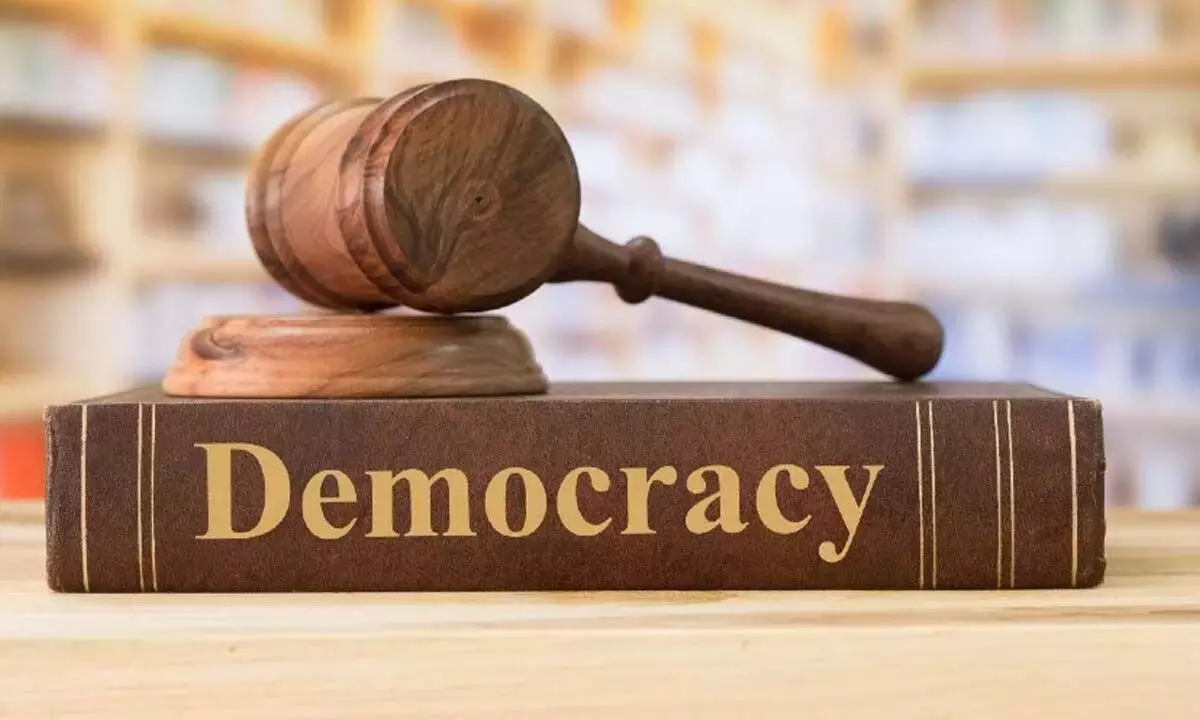Unchecked, corporate funding paralyzes democracy

U.S. Supreme Court Justice Justice Louis Brandeis once wrote, “We can have democracy in this country, or we can have great wealth concentrated in the hands of a few, but we cannot have both.”
Ever since the Supreme Court struck down the electoral bond scheme on February 15 and asked State Bank of India (SBI) to share all details on bonds sold and redeemed since April 2019, there has been a lot of discussion and attention. It is more about who gave how much money to whom, rather than what effect the whole matter has on the common man.
Everyone agrees that elections are becoming expensive and democracy is becoming weak because of money. Due to this, political parties become dependent on donations from corporates and this has a negative impact on the lives of the common man. But unfortunately neither economists explain it nor political parties will speak on it.
Dependence on political funding by corporates has tilted the elections in favor of the top 0.1% of the population. Every opposition party shouts loudly that the present government has failed and the poor are getting poorer and the rich are getting richer. When all political parties are dependent on corporate funding what else do they expect to happen? Prime Minister Narendra Modi once said (in a different context) that nothing comes free. True, corporate funding also does not come free. There has to be some return and the common man has to bear its burden. Governments hesitate in giving tax relief to the common man but are eager to help corporates get tax benefits in the name of development.
No party or leader can deny the connection between corporate funding and elections. It’s just that they don’t have the courage to accept it. Cutting corporate taxes is nothing more than a ‘return of favour’ for funding political parties in the form of electoral bonds or in any other name. This certainly takes us away from democracy, whether one agrees or not. In fact, political parties have now changed the definition of democracy. If a leader is arrested then it is considered a black day in democracy and a threat to democracy. But even if a common man is arrested illegally, this law takes its course. All political leaders think that they are above the law and are the apostles of all the good, nay, the best virtues on earth. They even want to run the government from jail.
What is the solution? The central government should ban all forms of corporate donations, including electoral bonds. This should then be followed by public funding of elections, where each candidate getting more than five percent of the vote should receive a certain amount of money as reimbursement for election expenses. This can be done if the tax benefits given to rich corporates are stopped.
The most important solution is to control personal expenses. Under the current system, the limit of Rs 75 lakh set by the Election Commission of India is always crossed and yet candidates and parties get away with it. There is a need for major electoral reforms and redesign of the ECI to ensure that the limits set by the ECI are strictly enforced.
European countries such as France and Belgium have reduced private spending on elections through a series of laws since the 1990s, successfully negating the influence of the extremely wealthy on elections. In fact, France banned all forms of corporate funding in 1995 and limited individual donations to 6,000 euros. ‘Where there is a will there is a way.’ Will Modi 3.0 focus on this?
















